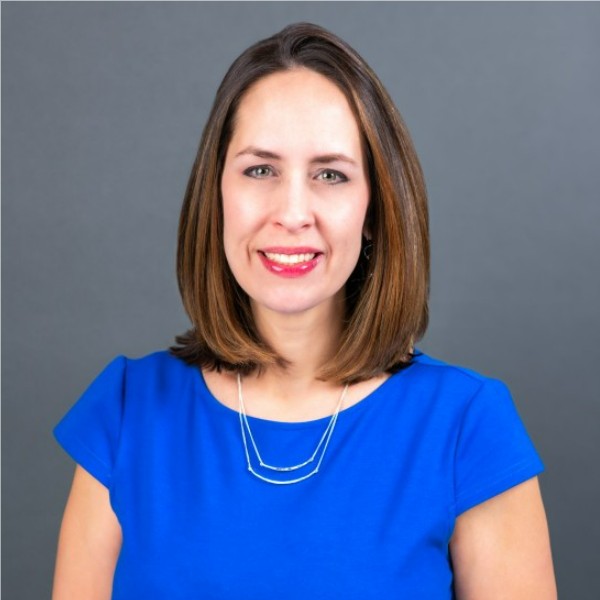From Self-Compassion to Adaptive Leadership: Laura Bartus on Managing Organizational Transitions
Laura Bartus is on the podcast this week! Laura is a key figure in learning and development at the Human Health Project and Humana, where her team supports the growth and learning of 12,000 associates. Here are actionable steps to help you lead through change and support your team in adapting effectively:
Embrace Self-Compassion and Patience
Laura underscores the importance of self-compassion and patience during transitions. Change can be unsettling and stressful, so it's important to allow yourself and your team the time to adapt. Encourage self-care practices and remind everyone that it's okay to take time to adjust.
Communicate Changes Effectively
Effective communication is crucial when leading through change. Laura stresses the need for leaders to communicate the reasons for changes and the benefits to their teams. This reduces anxiety and prevents misinformation. Always answer the key question, "What's in it for me?" to help team members see the positive outcomes of the change.
Practice Adaptive Leadership
Adapting leadership styles to meet team members at various stages of the change journey is essential. Laura highlights adaptive leadership, which involves tailoring your approach based on where each team member is in their adjustment process. Provide personalized support and address individual concerns to foster a supportive environment.
Manage Fear and Anxiety
Fear of the unknown often drives resistance to change. Laura suggests acknowledging these fears and helping your team create actionable plans to manage worst-case scenarios. This shift from fear to productivity can significantly impact overall morale and engagement. Teach your team to focus on what they can control, using tools like a "things I can control" list to maintain clarity.
Foster Open Dialogues and Feedback Channels
Open dialogue and direct communication channels are vital for successful change management. Laura recommends using surveys and focus groups to gather feedback and stay connected with team sentiments. This helps address concerns promptly and keeps the team aligned with organizational goals.
Align Learning and Development with Business Goals
It’s crucial for learning and development (L&D) to support the company's objectives. Laura advises engaging with the head of strategy to understand organizational strategic initiatives and how L&D projects can align with these goals. Focus on making a financial difference or enhancing associate engagement rather than just increasing the number of learners.
Build Effective Leadership Development Programs
Leadership development is fundamental in helping an organization navigate change. Laura has organized internal conferences and development programs focused on building business acumen and personal growth. Design your programs to be short and impactful to accommodate various roles within the organization, including hourly workers.
Cultivate Mentorship and Readiness
Mentorship played a significant role in Laura's career development. She emphasizes the importance of developing necessary skills and leading informally before pursuing formal leadership roles. Encourage mentorship within your organization to help employees understand when they are ready for leadership and provide them with growth opportunities.
Encourage Continuous Learning and Development
Laura's experience shows that thriving through change involves continuous learning. Encourage your team to embrace a mindset of growth and resilience. Organize development programs and provide resources that help them learn from past experiences and failures, ultimately improving their response to future changes.
Support Organizational Changes with HR and Talent Development
HR and talent development play critical roles in supporting organizational change. They can facilitate career mobility, promote engagement, and communicate the impact and benefits of changes. Ensure frequent communication to keep teams informed and aligned, especially in virtual or remote work environments.
Creating a culture that thrives through change requires intentional effort, effective communication, and adaptive leadership. By following these steps and learning from Laura Bartus’s experiences, organizations can support their teams in embracing change and turning challenges into opportunities.
Be sure to listen to the full episode on the Talent Development Hot Seat Podcast!
Laura Bartus is the Chief Learning Officer for the Human Health Project and the head of learning and development for CenterWell Pharmacy, a division of Humana. At the Human Health Project, Laura helps the organization set near-term and future strategy, scale up its patient education programs, and increase its reach to new groups of patients and caregivers. At Humana, Laura’s teams create, deliver, and track learning and development programs for the pharmacy organization’s 12,000 associates. This includes dispensingsites, call centers, professional tracks, and Pharmacists and Pharmacy Techs.

